As the global population grows older, understanding what drives the aging process is becoming increasingly important. Diseases like Alzheimer’s, cardiovascular conditions, and cancer are more common with age, yet many current treatments only manage symptoms rather than addressing the underlying biological causes.
Aging (Aging-US) Research
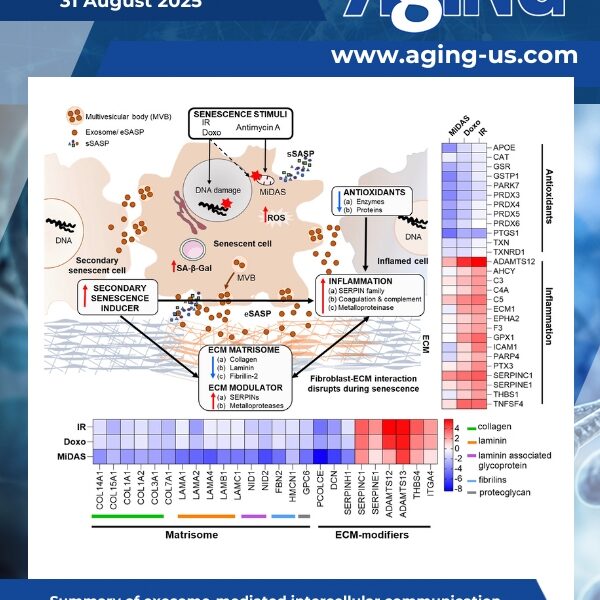
Senescence emerged as significant mechanism of aging and age-related diseases, offering an attractive target for clinical interventions. Senescent cells release a senescence-associated secretory phenotype (SASP), including exosomes that may act as signal transducers between distal tissues, and propagate secondary senescence.

Researchers from Beiersdorf AG, Research and Development Hamburg in Germany, used a microphysiological co-culture system—a lab-based model simulating human circulation—to test the effects of young versus old blood serum on skin cells.
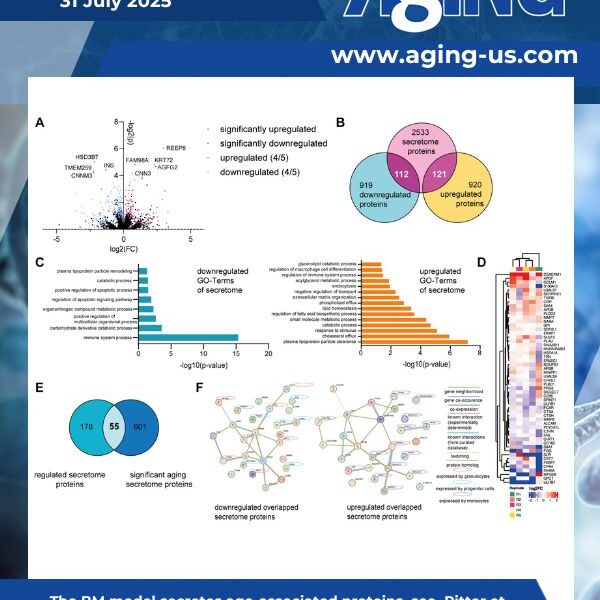
Aging is a complex process that significantly contributes to age-related diseases and poses significant challenges for effective interventions, with few holistic anti-aging approaches successfully reversing its signs.

A new study published recently as the cover of Aging Volume 17, Issue 6, describes a new method to estimate how fast the brain is aging. By analyzing lipids, or fat molecules, in brain tissue, researchers from the National University of Singapore and Hanze University of Applied Sciences created a biological “clock” called DoliClock.
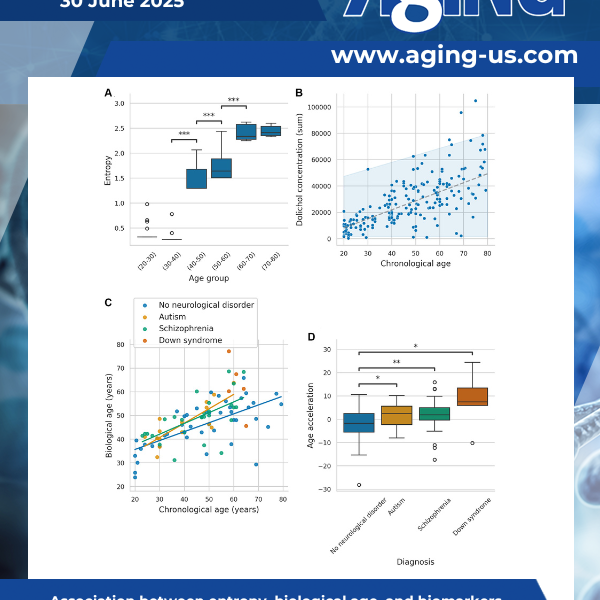
This study introduces DoliClock, a lipid-based biological aging clock designed to predict the age of the prefrontal cortex using post-mortem lipidomic data. Significant age acceleration was observed in autism, schizophrenia, and Down syndrome.

As we age, our brains become more sensitive to stress and disease. A recent study sheds light on a lesser-known risk: reduced oxygen levels.
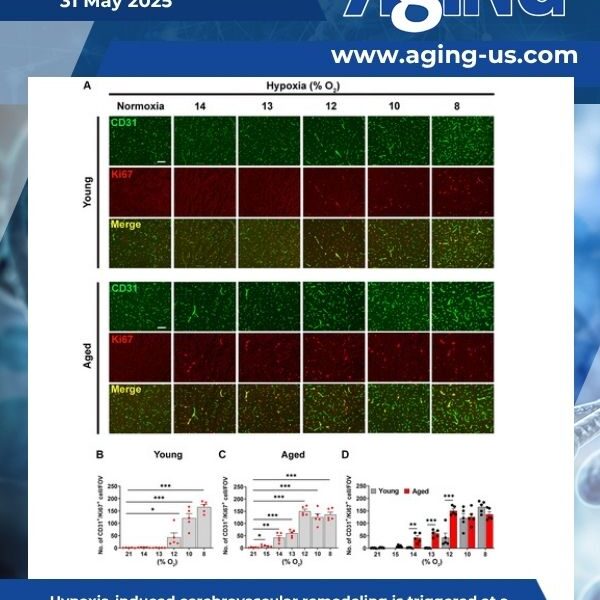
Chronic mild hypoxia (CMH; 8% O2) triggers transient blood-brain barrier (BBB) disruption, an effect greatly increased with age. As BBB disruption predisposes to neuronal death and cognitive decline, here we defined the hypoxic thresholds that trigger BBB breakdown in young and aged mice, and then defined the age at which hypoxia-induced BBB disruption significantly increases.

Werner syndrome is a rare condition marked by accelerated aging. A recent study, featured as the cover paper in Aging (Aging-US), Volume 17, Issue 4, led by researchers at the University of Oslo and international collaborators, suggests that nicotinamide adenine dinucleotide (NAD+), a vital molecule involved in cellular energy production, may be key to understanding this disease and developing future strategies to manage it.
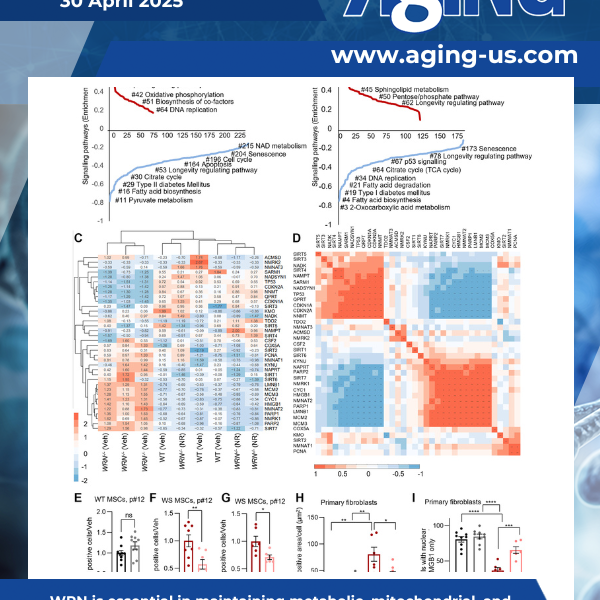
Werner syndrome (WS), caused by mutations in the RecQ helicase WERNER (WRN) gene, is a classical accelerated aging disease with patients suffering from several metabolic dysfunctions without a cure.

